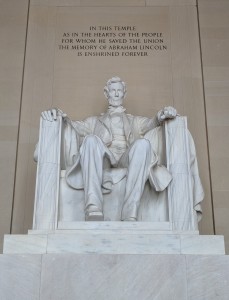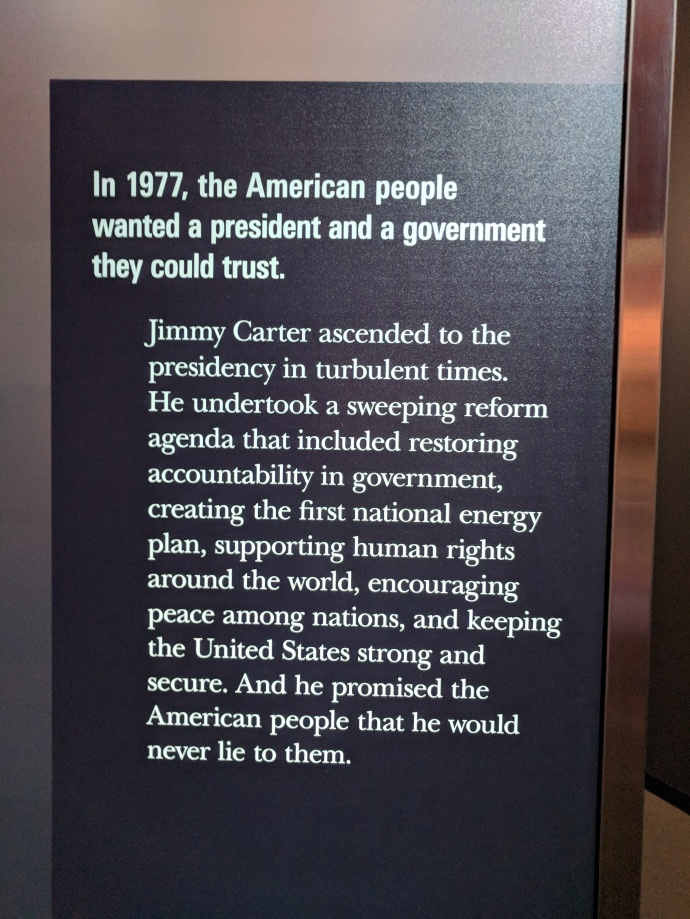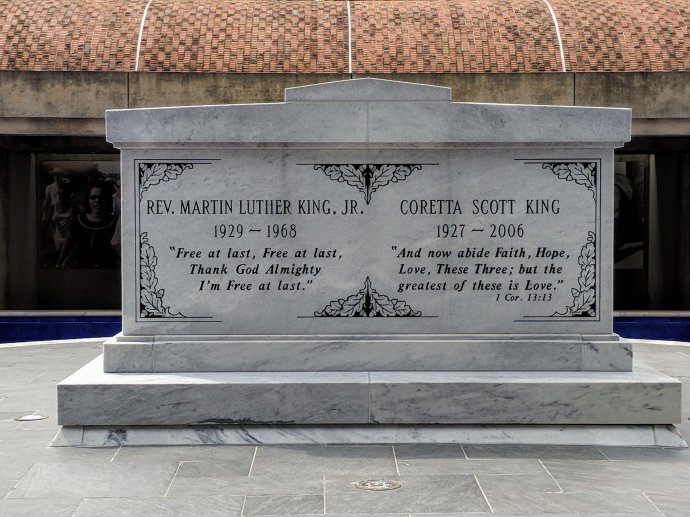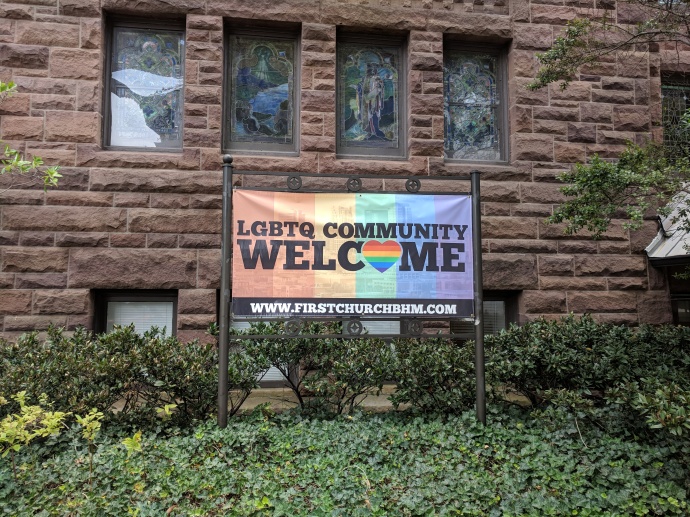One thing I gleaned from my 3-month sabbatical experience this summer was an overall, 30,000-foot view of the general population’s expectations of the church. This is by no means a scientific, peer-reviewed, research study of church, it is simply a reporting of this author’s garnering of impressions.
By “church,” I’m talking about Christianity in general. I am in no way referring to any specific congregation, denomination, or theology. Of course, there are many local exceptions to what I’m writing here. This article, however, is my collective experience from a 3-month period of intense and deliberate listening in several countries and U.S. states.
To put it very simply, my overall impression is that people expect very little from the church. At least in ways that will make a difference or change lives in significant ways. For example, when a portion of our culture is experiencing poverty, vulnerability, or marginalization, and though Jesus directly challenged the powers that maintained these experiences, the church is nowhere near the top of the list of places where we consider looking to change that. The church is seen as good at individual acts of charity on a local level, which is commendable, but there is no expectation of addressing the issues that are beneath the need for those acts of charity. In other words, the church is viewed as a good place for handouts to the poor on a case-by-case basis, but not as an entity with the power or vision to address a culture of poverty.
Many people were clear that this has not always been the case. In the southern United States, for instance, there is a wide impression that the church was on the forefront of the Civil Rights movement in the 1950s and 60s. In a time of racially motivated murder, lynching, and division, the church was perceived as an institution that played a major role in improving the lives of Black Americans. This “on the front lines of change” view no longer seems to be the expectation. For some, the church appears to be claiming legitimacy by riding the wave of former civil rights activity; for others, the church seems to have simply retreated into the background. In either case, the expectation of what the church can offer has diminished considerably.
Surprisingly, this low-expectation view of the church is held not only by people outside of the church, but inside as well. My impressions are that those inside the church are also expecting their church to be merciful to individuals in need, but not to address the deeper issues that make mercy necessary. For those of us who claim a baptismal life committed to participation in the reign of God as disciples of Jesus, these expectations seem shockingly low. And the church will meet these expectations. Unfortunately.
I don’t believe this has to be the case. At its core, the power of Christ’s gospel is the power of hope and renewal. Expectations of the church, can, I believe, rise to the level of this call and the gifts we have been given. But to do so we need to address the reasons that expectations are low so we can begin to raise them from within.
I have some suspicions as to why expectations of the church appear to be so minimal. Among them are issues of privilege, individualism, and Christian fundamentalism. In the next few posts on this blog I will attempt to deal with each of these and speculate about ways to overcome them. Tune in. Read on. There is hope for the world. And the church can again reveal it on the front lines. Will that become our expectation? I hope so.


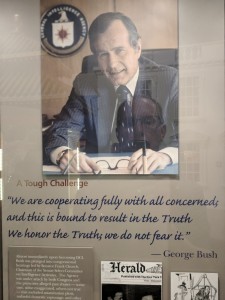 A trip to Houston, TX provided the opportunity to visit the George H. W. Bush Presidential Library on the campus of Texas A&M University in College Station, TX. President Bush was a self-made successful businessperson who valued his family. He enjoyed taking risks and pushing himself, which led to his career as a fighter pilot in WWII as well as an oil business entrepreneur. It was these same values and priorities which drove him into public service in politics, providing him the opportunity to serve in several prominent government positions including Congress, U.S. Ambassador to the United Nations, Director of Central Intelligence, U.S. Envoy to China, Vice President, and ultimately as the 41st President of the United States.
A trip to Houston, TX provided the opportunity to visit the George H. W. Bush Presidential Library on the campus of Texas A&M University in College Station, TX. President Bush was a self-made successful businessperson who valued his family. He enjoyed taking risks and pushing himself, which led to his career as a fighter pilot in WWII as well as an oil business entrepreneur. It was these same values and priorities which drove him into public service in politics, providing him the opportunity to serve in several prominent government positions including Congress, U.S. Ambassador to the United Nations, Director of Central Intelligence, U.S. Envoy to China, Vice President, and ultimately as the 41st President of the United States.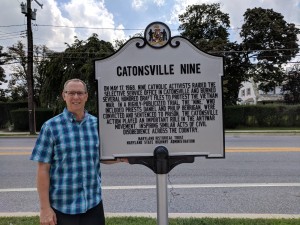 This sign, posted on the grounds of the Public Library in Catonsville, MD (a western suburb of Baltimore), was placed in May of this year. It notes an illegal act of civil disobedience resulting in the destruction of federal property that occurred nearby 50 years ago.
This sign, posted on the grounds of the Public Library in Catonsville, MD (a western suburb of Baltimore), was placed in May of this year. It notes an illegal act of civil disobedience resulting in the destruction of federal property that occurred nearby 50 years ago. At the far end of the long Reflecting Pool on the west side of the city is one building that, from a distance looks as overpowering as the rest. Yet its very presence indicates that there has been within this city a commitment to integrity, compassion, and sacrifice for the sake of others. The Lincoln Memorial honors the 16th President of the U.S., who in a context of division over the issue of slavery, took a committed—if controversial—stand on behalf of oppressed, enslaved Americans. His commitment to take the side of those with no rights put our country into a civil war, almost divided it, and eventually cost Abraham Lincoln his life.
At the far end of the long Reflecting Pool on the west side of the city is one building that, from a distance looks as overpowering as the rest. Yet its very presence indicates that there has been within this city a commitment to integrity, compassion, and sacrifice for the sake of others. The Lincoln Memorial honors the 16th President of the U.S., who in a context of division over the issue of slavery, took a committed—if controversial—stand on behalf of oppressed, enslaved Americans. His commitment to take the side of those with no rights put our country into a civil war, almost divided it, and eventually cost Abraham Lincoln his life.